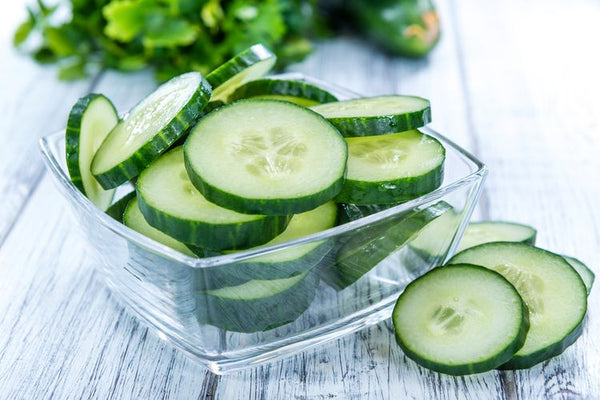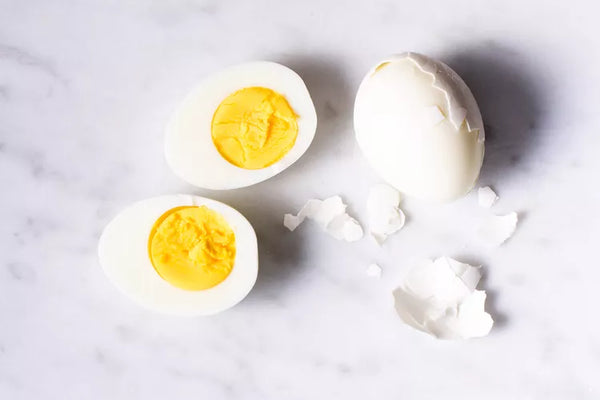
Energy Drinks & Kids: Safe to Consume?

It's hard to get past the grocery store cashier without finding an energy drink. Tins with attractive and edgy packaging seem to appeal to the younger generation.
Then, the question is can children drink energy drinks?
Children may be drawn to energy drinks at a much younger age than you might expect. Here's what to know before letting them open a can.
What is an Energy Drink?
Energy drinks are usually a combination of energy-boosting B vitamins, post-workout recovery amino acids such as L-carnitine, and caffeine as a stimulant. These ingredients will work together to help energize the mind and body.
For adults, this drink can be an alternative. If you have a hard workout, everything in the can will give you the boost you need to push and reach your health goals.
Children don't go to the gym and shouldn't take part in intense physical exercise, and that's one of the many reasons why this combination of ingredients is largely unnecessary for their health.
What's the Difference Between Sports Drinks and Energy Drinks?
Sports drinks, soft drinks, and energy drinks are often grouped into the same category, but they are very different. Sports drinks usually do not contain vitamins or stimulants. Instead, they contain electrolyte minerals and carbohydrates that are absorbed quickly in the form of sugar.
When you are in the sun for a very long time or when you are very physically active, the body uses more of its own water.
You sweat, and if you sweat a lot, your body wants to restore the lost water.
The electrolytes in sports drinks help replenish some of what the body loses through sweat while encouraging the body to retain more water.
Are Energy Drinks Safe for Children?
There is nothing harmful about the vitamins in energy drinks. It is unlikely that your child will benefit from amino acids, which are most beneficial for people who are focused on gaining large amounts of muscle mass.
Your child doesn't need that amount of caffeine for energy. That's where energy drinks and kids don't work well together.
Children are inherently more sensitive to the side effects of stimulants because of their smaller stature and developed systems. Although rare, children and adolescents die as a direct result of the excessive consumption of caffeine in energy drinks.
Are Sports Drinks Safe for Children?
There is nothing inherently harmful about sports drinks. The problem is that sports drinks usually contain added sugars that make your child's diet bloated with empty and unnecessary calories.
Sports drinks are often unnecessary for children. If you have a very athletic child who trains a lot, an occasional low-sugar sports drink and lots of water won't do any harm.
If you allow your child to drink sports drinks, make sure you read the nutrition labels carefully. Sports drinks that contain high amounts of sugar may be more harmful.
Do not use sports drinks as a substitute for water or give sports drinks to your child to take with meals.
Only give them after periods of moderate to intense physical activity or in situations where your child will naturally sweat a lot, such as on family trips or beach trips.
What Are Energy Drink Substitutes?
Almost all of the below are better alternatives to energy drinks. Here are some drinks you can give them.
Low Fat Chocolate Milk
Athletic people need healthy carbohydrates to power their bodies. Low-fat milk contains these carbohydrates and many other important vitamins and minerals.
Milk, oat, almond, and soy milk all work the same way in this regard, so whatever milk or dairy alternative your household uses is pretty much perfect. Children may prefer chocolate or vanilla milk to regular milk. Make sure you keep an eye on the added sugar. The lower, the better.
Coconut water
Coconut water may be a better substitute for sports drinks than energy drinks, but if you have active children, sports drinks are closer to something they benefit from.
Coconut water is similar to sports drinks in many ways. It is completely natural and contains the same electrolytes athletes need after an intense training session. It also tastes good, which makes it easy for teens to understand its appeal.
Protein Shakes for Kids
Protein shakes for kids are rarely necessary, but there may be cases where a very active picky eater would benefit from a protein shake after a busy day and a long football game.
Your goal should always be to encourage your child to get the required amount of protein from their diet. If you find it difficult, talk to your pediatrician about supplementing with protein on days when your child is active.
Multivitamin and Glass of Water
The health effects of energy drinks come from the combination of the stimulant effects of caffeine and the energy effects of B vitamins. B vitamins are not harmful to your child. They are essential for the normal growth and development of your child's body.
Ideally, your child should reach the recommended daily amount of B vitamins from their diet, but things don't always work out that way. Children who can't or won't eat animal products often don't get enough vitamin B12 in their diet, and B12 is essential for the body's ability to naturally produce its energy.
In some cases, multivitamin supplements can help. You should always consult your child's pediatrician before incorporating any new vitamins into your child's daily routine. Explain your child's average daily diet and energy expenditure to your pediatrician.
If your pediatrician agrees, choose a multivitamin designed to support your child's overall health.
A multivitamin with a full glass of water, fruit juice, and a healthy snack, such as a banana with nuts or seed butter, should be more than enough to help your child recharge and refuel.






